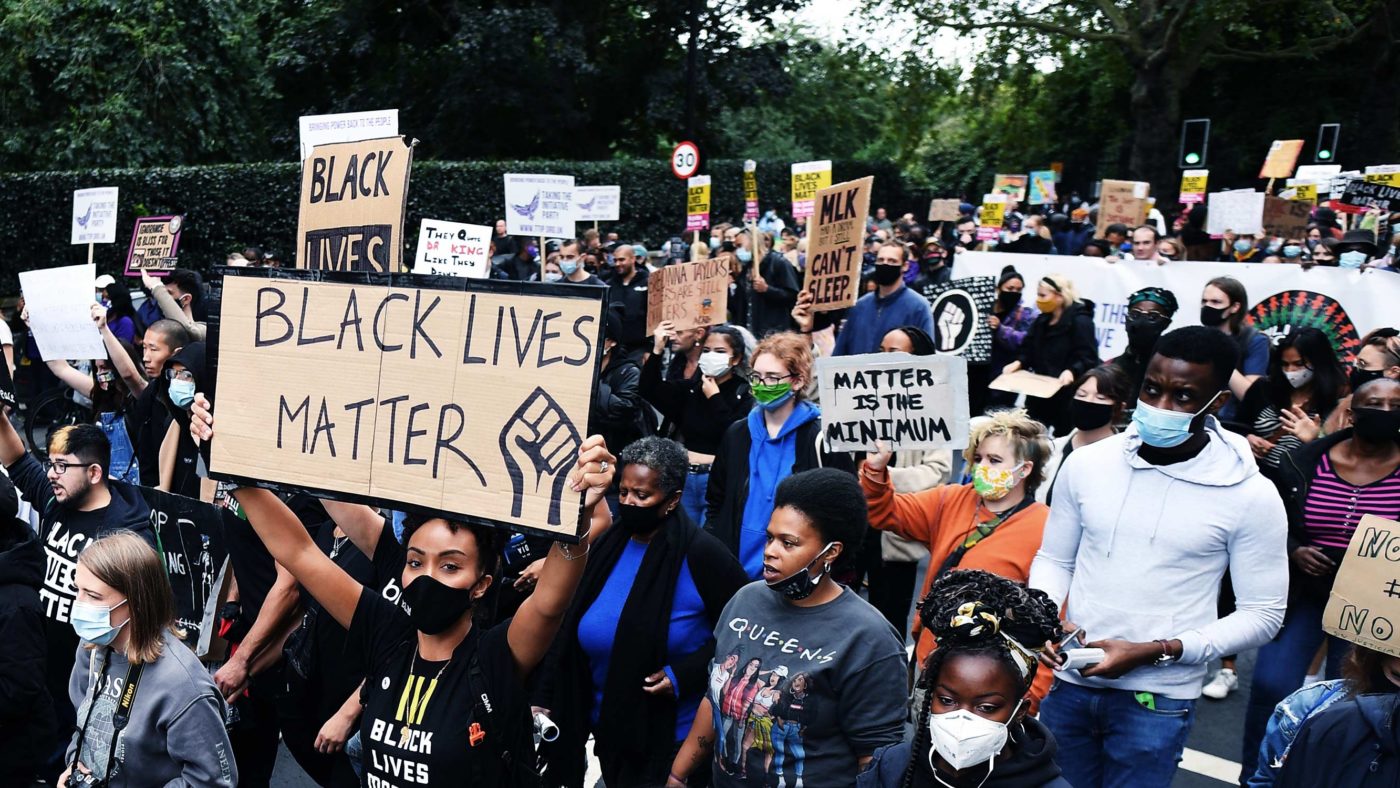Last summer, against the backdrop of Black Lives Matter UK demonstrations and subsequent counter-protests, I warned that America’s divisive culture-war politics was being imported into the UK. So, with it now being the Spring of 2021 – how divided is Britain, and does it find itself in the throes of a ferocious culture war of its own?
While the EU referendum exposed existing social and cultural fault-lines, the drawn-out process towards departure resulted in a ‘deepening’ of such fragmentation. To this day, how one voted in the referendum (along with the 2019 UK General Election) is an incredibly useful predictor for how they feel on a range of contemporary social issues – especially on matters of race.
While 53% of Conservative voters believe that UK race relations are in good shape, this drops to 33% for Labour voters. While 51% of Leave voters believe that the Black Lives Matter movement has had a negative impact on UK race relations, this plummets to 19% for Remain voters. And while 15% of Conservative voters think the UK has a fundamentally racist society, this rises to 47% for Labour voters.
These patterns are equally apparent in the YouGov polling on attitudes towards Meghan and Harry’s interview with Oprah Winfrey – with accusations of a member of a Royal Family expressing concerns over Archie’s skin colour dominating the fallout.
Before the interview was broadcast by ITV, a snap YouGov poll found that while only 19% of both Labour and Remain voters had no sympathy at all for the couple.This shot up three-fold to 57% for both Conservative and Leave voters, suggesting that party and Brexit affiliation have also become very tightly correlated.
A separate YouGov survey found that while 15% of Conservative voters felt Meghan and Harry had been treated unfairly by the Royal Family, this rose to 50% for Labour voters. Framing it as a dispute between the Royal Family and Meghan & Harry, 25% of Remainers said their sympathies lay with the Queen and the Royal Family – with this rising to 55% for Leavers.
These political fractures collectively paint a country which finds itself in a place of intense cultural polarisation. But while there are severe party-political and Brexit cultural divides in the mainstream, what is even more concerning are the stark differences between the general population and Black British people on matters of race and discrimination.
While 29% of people in the general population believe that the UK has a fundamentally racist society, this rises two-fold to 58% for Black Brits. A small majority of Black British people – 52% – disagree with the view that police brutality is not a problem in the UK. This drops to 22% for the wider general population. Nearly 6 in 10 Black Brits feel their own racial group is treated unfairly by their own local police force. Feeding into relatively high levels of Covid-19 vaccine hesitancy, nearly 3 in 10 Black Brits do not even think the NHS has treated their racial group fairly during the pandemic. There is no sugar-coating it – these are troubling figures for any multi-racial democracy.
There are many Brits who look to the US on matters of race and say “thank goodness it isn’t that bad here”. Perhaps so – but there’s no room for complacency either. One of the greatest challenges for post-Brexit Britain is reconciling political tensions over race, focused on reducing the gap between the general population and Black Brits on how they view their society and its institutions. This may seem a tall order, but it is eminently achievable, albeit with a great deal of co-operation, patience, and willpower.
‘Denialists’ on the right and ‘Obsessives’ on the left both need to be isolated: racism certainly exists in the UK, but there is a risk of viewing it as the sole explanation when looking at a variety of inequalities. Public institutions have a responsibility to reform themselves to reflect the needs and concerns of the diverse populations they serve, but civic associations and community groups should engage with them in a constructive manner on that journey. The labour market needs more robust anti-discrimination rules, but the emphasis must be on equality of opportunity, not outcomes. Preferential treatment for minority groups runs the risk of a cultural backlash in the mainstream, and the vast majority of people in Britain expect fairness, not favours.
Nor should we shy away from internal cultural problems, such as family breakdown and a lack of community support, that can feed into ethnic and racial disparities. Any social policy agenda should have families at the heart of it, for a stable family unit provides the foundations for personal development and long-term life satisfaction.
Click here to subscribe to our daily briefing – the best pieces from CapX and across the web.
CapX depends on the generosity of its readers. If you value what we do, please consider making a donation.


